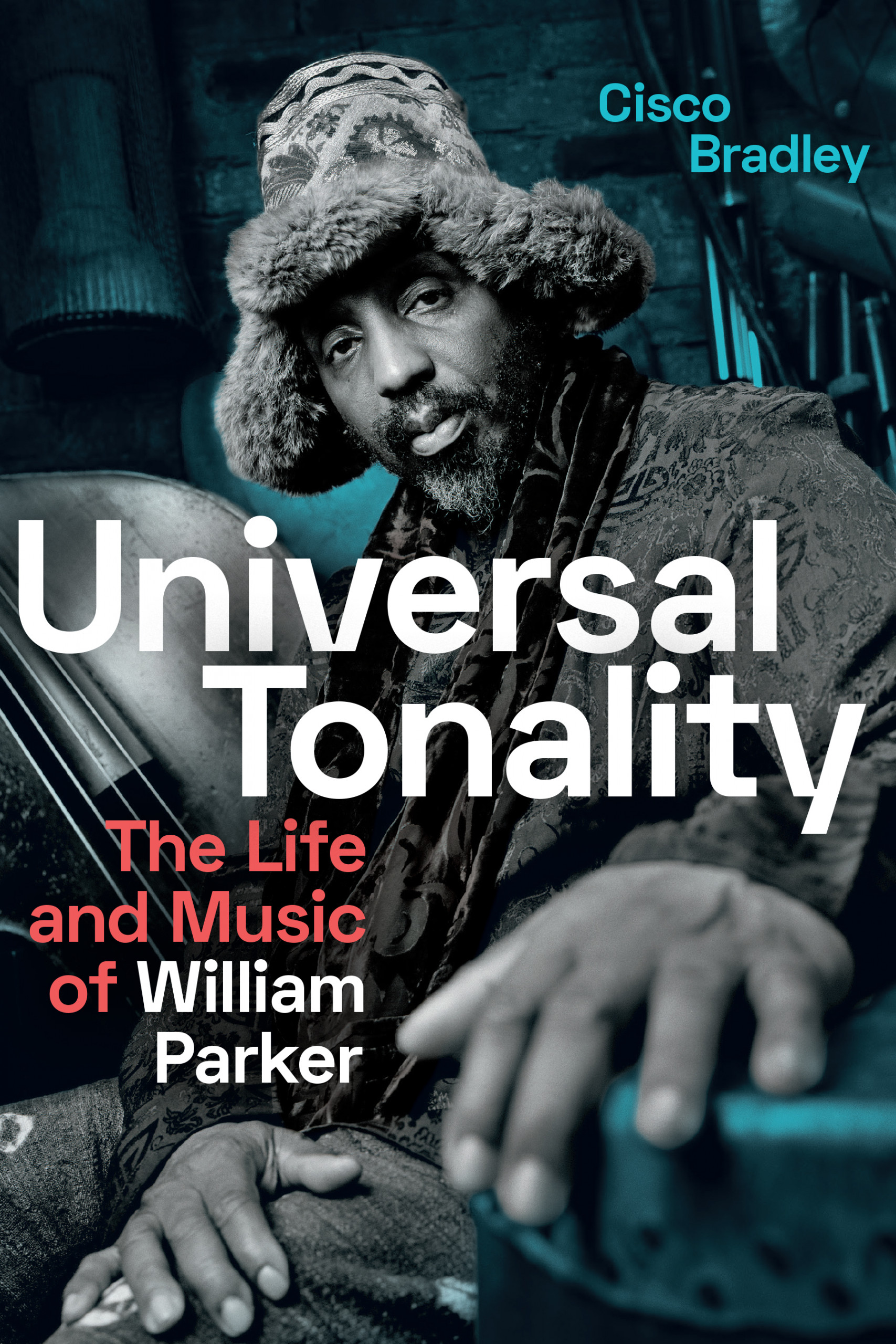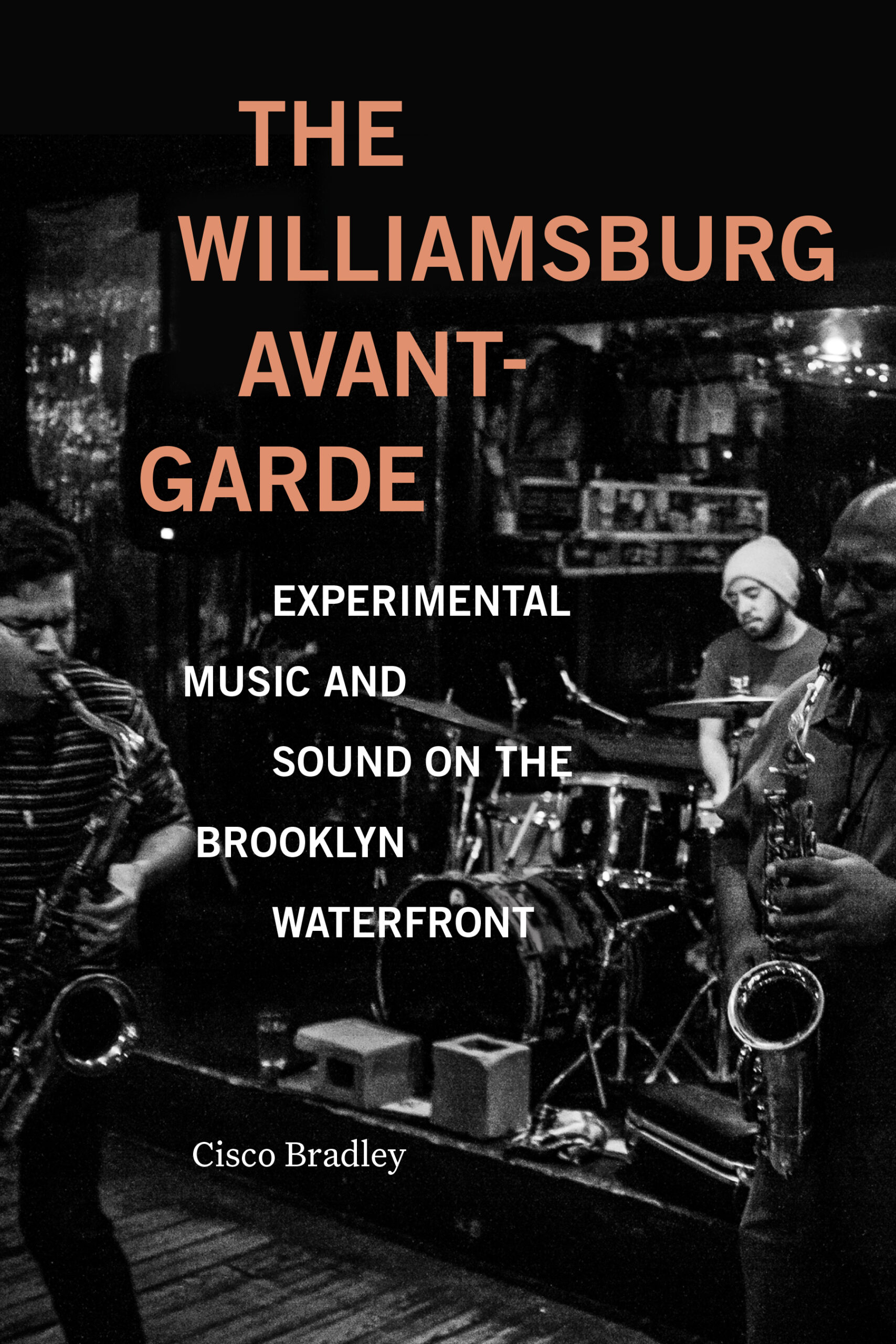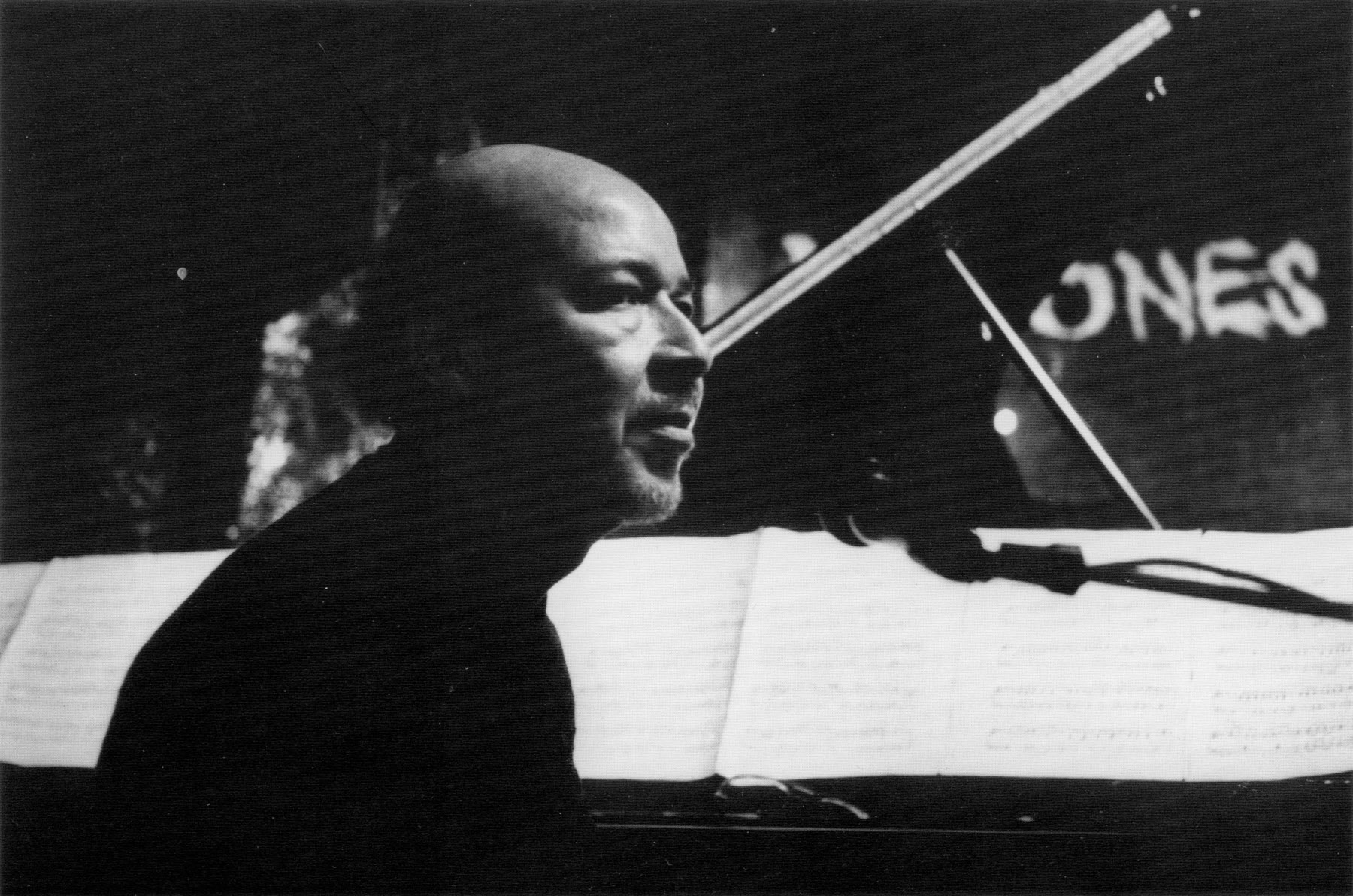As jazz reaches younger generations through the artists of this century, Cisco Bradley, associate professor of social science and cultural studies at Pratt, has been making sure the art form’s overlooked visionaries and their stories are receiving their due. Bradley’s new podcast Music and Migration Presents is his effort to showcase the unique insights from these musicians.
For a long time, Bradley was concerned with uplifting new, innovative voices, hosting loft shows for lesser-known, boundary-pushing performers, as well as cataloging the recent past, as he did in his recent book covering underground music in New York City from the 1980s to the 2010s, The Williamsburg Avant-Garde: Experimental Music and Sound on the Brooklyn Waterfront.
Over the last few years, the scope of Bradley’s scholarship has expanded in time and space. With an interest in jazz music and its practitioners’ migration throughout the US, Bradley established a project space, the Music and Migration Lab, to focus on Black experimental music’s enduring influence on politics, culture, social justice, and, broadly, community, from the 19th and 20th centuries onward. The Music and Migration Lab houses Bradley’s Free Jazz Oral History Project—which aims to document, preserve, and make publicly available the history of the music in the words of those who created it—and the new podcast.
In what started as an oral history project, Bradley has recorded more than 500 interviews with artists aged 70 to 100, such as pianist Dave Burrell and Karen Borca, the bassoonist and composer. The Music and Migration Lab is releasing these conversations biweekly (at musicandmigration.podbean.com and on other podcast platforms), spotlighting a long-neglected archive of Black creativity and authorship. The podcast is organized in three sections—Origins, New York Live, and Reflections—and features musicians from throughout and beyond the USA, offering unprecedented insight into their lives and work.
To mark its debut, Prattfolio spoke to Bradley about his research, recording these conversations during the height of the COVID-19 pandemic, and the vital role this work plays for emerging musicians, scholars, and jazz lovers today.
How did you come up with the concept for this podcast? What inspired you to speak with these musicians?
Cisco Bradley: I actually began the oral history project in 2013, formalized it in 2016, and then stepped up the frequency of the interviews during the pandemic. I came at this from the perspective of an archivist, but in 2023 I began to think about the possibilities of featuring some of the interviews as podcasts.
I have always taken time with these things—if a musician wants to talk for multiple hours, I will take that time. They have done important work and often have not been documented enough. Their lives are as important as the music they make and so I’ve tried to really dig in and talk in an in-depth way with people about their origins, upbringing, and methods of learning and what they did through the course of their careers.
Why these musicians in particular? I’ve been fascinated with experimentation in music for most of my life, and I find experimenters to have fascinating ways of thinking. So, I reached out to some of this country’s most fascinating musicians and thinkers for these conversations.
In the beginning, I interviewed mostly younger musicians, under age 45, because I saw value in pushing for the next generation. In 2016, when I began working with bassist William Parker on his biography, I expanded the project to include many people of his generation or older and have since put a lot of my focus on documenting the elders of the music. This has included people born as early as 1921, so it covers a century of American history. I have also interviewed people from around the world, usually when I am traveling, and that has brought in other dimensions, from places like Ethiopia, Mexico, South Africa, Korea, and various places in Europe.
What led you to release these conversations as a podcast?
CB: My work really began when I founded [the website] Jazz Right Now in 2013 and began interviewing musicians. As a writer, I have often thought primarily through the written word, but in recent years, I have begun to also consider audio and video.
The orality of the interviews lends them well to a podcast—there are always things people convey in their voice that are lost when it is transcribed into text. So I wanted to find a way to make the recordings available to the general public. The podcasts are aimed at reaching beyond whatever audience has engaged with my writing. Some people may listen to a podcast who will never buy a book. I think it connects with a younger audience and is easily accessible to people from around the world in ways that a book may not be.
What is your biggest takeaway from the project so far? What do you hope people will take away?
CB: The musician elders I have talked to have a tremendous amount of wisdom, expertise, and pure genius that they share through these conversations. We don’t live in a wise society these days. I hope people will listen and really hear what these premier American artists have to say about a wide range of things, from music, art, and philosophy to social change, politics, race, and class-based oppression in the US, and all kinds of related issues. These are serious artists and they have given the world a lot of thought.![]()
Explore More New York Jazz in These Books by Cisco Bradley

Universal Tonality: The Life and Music of William Parker (Duke University Press)
Cisco Bradley’s first book on music is a comprehensive biography of jazz bassist, composer, and bandleader William Parker. Bradley follows Parker’s trajectory from the New York City loft scene of the 1970s to present day, with a special focus on the role of activism and community in Parker’s artistic development. This book lays the foundation of Bradley’s project to amplify the original voices of the form. Reviewer Lee Rice Epstein wrote on Free Jazz Blog that one of the most important aspects of Universal Tonality is “how many voices are there, on the page, including Parker’s. It’s his story, most of all, but now it’s also ours, as the audience, as the experiencers, as the ones who’ll carry it forward.”

The Williamsburg Avant-Garde: Experimental Music and Sound on the Brooklyn Waterfront (Duke University Press)
In his most recent book, Bradley chronicles the Brooklyn experimental music scene, from its roots in Williamsburg to its growth into an international phenomenon to its continued incubation of new sounds in Bushwick and Red Hook. Featuring recordings, interviews, and other archival materials, the book’s focus on the growth of the music and its stalwart struggle against encroaching gentrification tells a broader story of, as Bradley puts it, “the struggle of artists of all disciplines to find art space, to nurture their art forms, and to build a healthy community of like-minded creators.”
Bradley’s current book-in-progress, The Horn Is the River: The Revolutionary Life and Music of Charles Gayle, is a biography of the late avant-garde saxophonist. The project, which received the support of a grant from the New York Council on the Arts this year, is directly connected to the oral histories Bradley has been working on with the Music and Migration Lab.
